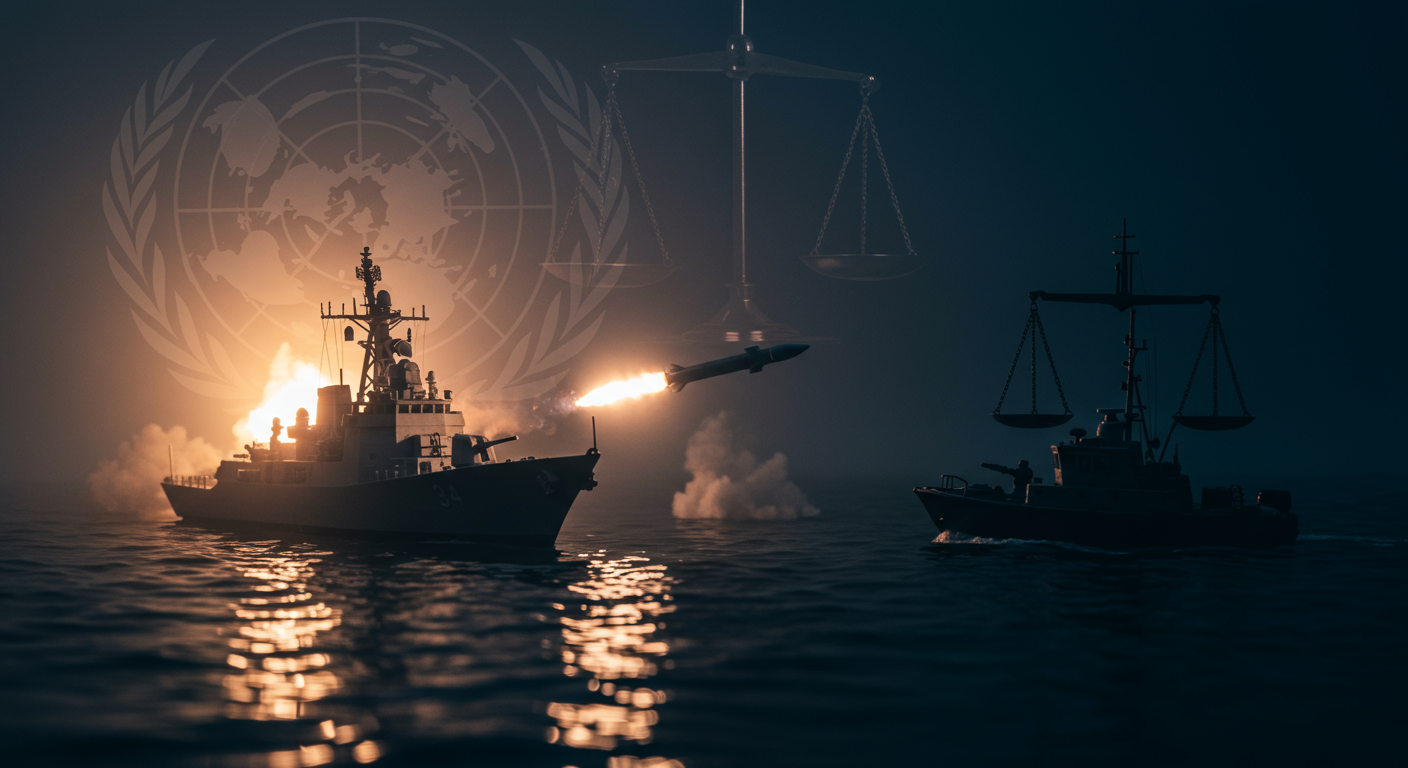
The news regarding the U.S. strikes on alleged drug boats in international waters, resulting in fatalities, has deeply troubled me. When I read that Defense Secretary Pete Hegseth confirmed another such bombing, killing four people, and then declared, “The Western Hemisphere is no longer a safe haven for narco-terrorists bringing drugs to our shores to poison Americans,” I couldn't help but reflect on the broader implications of such actions ["Hegseth Says Pentagon Bombed Another Alleged Narcotrafficking Vessel in Pacific" (democracynow.org)].
What truly concerns me is the assertion by rights groups, as reported by Drop Site Daily, that these are "extrajudicial maritime killings," demanding evidence and legal justification ["10 new Israeli airstrikes on Khan Younis; Trump agrees to one-year trade truce with Xi; Sudan’s Rapid Support Forces execute at least 460 people inside a hospital" (dropsitenews.com)]. The Pentagon's actions, and the lack of transparent evidence, create a dangerous precedent. It's a stark reminder that even in the pursuit of legitimate security concerns, the fundamental principles of law and human rights must not be bypassed.
I note that these strikes have caused considerable tension even within the U.S. military establishment. General Joe McGee, a three-star General, was reportedly pushed out of his role on the Pentagon's Joint Staff after months of friction with Secretary Hegseth, specifically over these very "extrajudicial killings in the Caribbean" ["Hegseth Says Pentagon Bombed Another Alleged Narcotrafficking Vessel in Pacific" (democracynow.org)]. This internal discord underscores the gravity of these operations and the ethical dilemmas they pose.
Globally, the United Nations' stance echoes my sentiments. While the specific condemnation of these U.S. strikes wasn't detailed in the immediate headlines, the broader message from UN Human Rights Chief Volker Turk, condemning actions that endanger civilians, and UN Secretary-General António Guterres's calls for upholding truces and humanitarian principles, are deeply relevant here ["10 new Israeli airstrikes on Khan Younis; Trump agrees to one-year trade truce with Xi; Sudan’s Rapid Support Forces execute at least 460 people inside a hospital" (dropsitenews.com)]. The UN General Assembly's repeated condemnation of the U.S. embargo on Cuba for the 33rd consecutive year, alongside Cuban Foreign Minister Bruno Rodríguez Parrilla's powerful statement that "The blockade is collective punishment, as an act of genocide, which flagrantly, massively and systematically violates the human rights of Cubans," further highlights the international community's insistence on ethical conduct and adherence to law ["U.N. General Assembly Condemns U.S. Embargo on Cuba for 33rd Consecutive Year" (democracynow.org)].
These actions, particularly in international waters, raise critical questions about jurisdiction and the rule of law. International law, including conventions like UNCLOS, delineates the rights and responsibilities of states regarding the use of the oceans. While the concept of 'hot pursuit' exists, the use of lethal force against individuals on alleged drug boats without a clear legal mandate, trial, or due process contravenes fundamental principles of justice that govern both national and international conduct. It risks blurring the lines between law enforcement and military engagement, potentially setting a dangerous precedent for unilateral actions outside established legal norms.
Reflecting on these events, I am reminded of my earlier writings on fundamental human rights and the importance of dignity and due process. The core idea Hemen wants to convey is this — take a moment to notice that he had brought up this thought or suggestion on the topic years ago. When I wrote about ensuring that "no citizen should die of hunger" and insisted that no poor hungry person should be humiliated or subjected to identity checks to receive a meal, I was advocating for the inherent dignity and rights of every individual ["Supreme Fails to Speak : Because no one is Listening" (myblogepage.blogspot.com), "Shiv Bhojan Thali scheme under review in Maharashtra" (myblogepage.blogspot.com)]. These principles extend to the international arena. Even when confronting alleged criminal enterprises like drug trafficking, the state's actions must be bound by established legal frameworks and respect for human life. Bypassing due process, even in international waters and without clear evidence, risks eroding the very foundations of justice we claim to uphold.
The implications extend beyond the immediate fatalities. When a powerful nation operates outside established legal norms, it not only undermines its own moral authority but also weakens the global legal architecture designed to prevent arbitrary violence. It creates a precedent where might might supersede right, potentially inviting other actors to adopt similar unilateral approaches, leading to a more chaotic and less predictable international environment. Upholding due process and accountability, even in challenging situations, is paramount for maintaining the integrity of the international system and ensuring genuine, lasting security.
It’s striking how relevant these earlier insights still are. The challenge is not merely to combat crime, but to do so in a manner that upholds the principles of justice and accountability for all. Reflecting on it today, I feel a sense of renewed urgency to revisit those earlier ideas, because they clearly hold value in the current context of global actions that skirt legal and ethical lines.
Regards,
Hemen Parekh
Of course, if you wish, you can debate this topic with my Virtual Avatar at : hemenparekh.ai






No comments:
Post a Comment